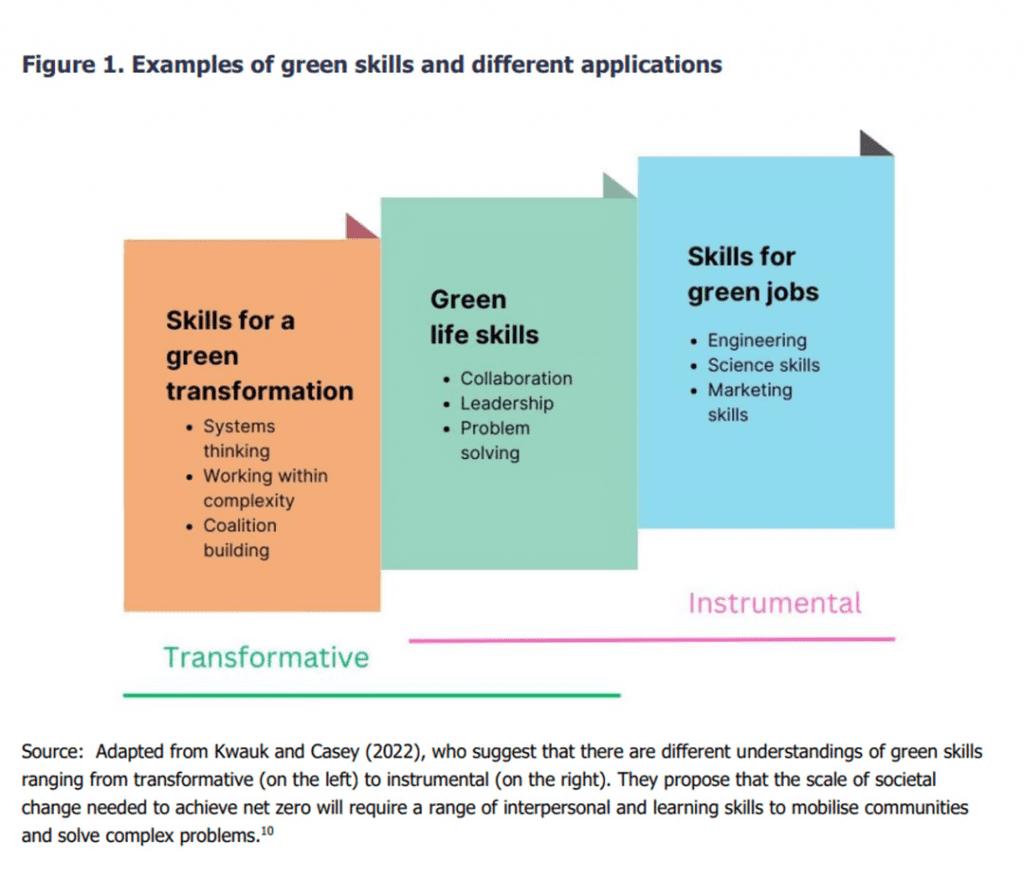Learning & skills
We’ll do most of the learning we need to face current challenges in practice. We need the right tools for that job.

Open Learning
Flexible, low-barrier learning that meets people where they are and relates ideas to practice.

Place-based learning
Experiential, community-based and contextual to share know-how and drive real-world change.
A field study and database of Open and Place-based learning for climate and community
Open Learning builds the capabilities we need
Our changing context requires new capabilities; to navigate uncertainty and complexity, to collaborate and work systemically, to imagine alternative futures and innovate and adapt towards them.
These capabilities, known as transformative green skills and green competencies, are best built together, in practice.
As a council officer and food network coordinator, my most immediate takeaway was the model of how my team and I might support the system to learn better together.
- First Hand Walking Tour Participant, May 2025
Meaningful learning experiences
Penny drop moments to remember and talk about
Capability over awareness
Practical skills, tools and mindsets for change
Stakeholders in the room
Cross-disciplinary and cross-sectoral exchange
Delivery capacity & skills
Pooling resources and collaborative working
Measurable outcomes at pace
Increased connections and confidence to act
One good way to learn something new is through specific examples rather than abstractions and generalities.
- Donella Meadows, Thinking in Systems




